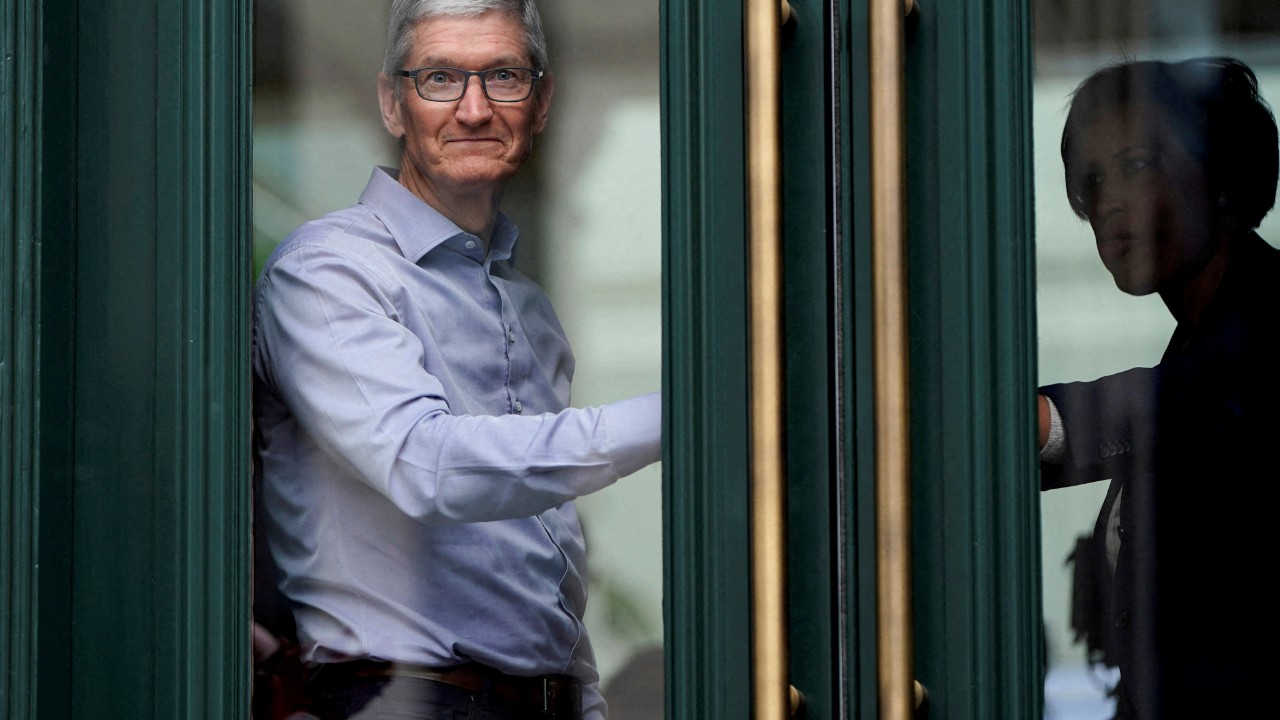Tim Cook engages in high-stakes discussion with EU over App Store policies
In a high-stakes meeting, Tim Cook, Apple's CEO, engages in discussions with EU officials regarding the company's App Store policies, signaling a critical juncture in the tech giant's relationship with European regulators.

Apple, as one of the world's largest companies with substantial reserves, finds itself navigating the complex realm of regulations and authorities. Notably, the European Union imposed a regulation last year that compelled Apple to bid farewell to its proprietary charging port, the Lightning connector, in favor of adopting USB-C for the iPhone 15 series. However, recent developments suggest that the EU's ambitions extend beyond this change, as they work on the Digital Markets Act (DMA), which could potentially challenge Apple's monopoly over the App Store.
Tim Cook engages in high-stakes discussion with EU over App Store policies
The EU's Digital Markets Act represents a new legal framework aimed at fostering fair competition within the digital sector, particularly for tech giants. It seeks to address issues of monopolization, such as those seen in app stores like Apple's and Google's, where the platform's manufacturer exerts significant control over the entire ecosystem. This law holds particular significance for Apple, especially considering its restrictions on sideloading, which has led some to dub it the "Apple Law."
Yet, influencing Apple's practices is a complex task. To address these concerns, CEO Tim Cook engaged in discussions with EU industry chief Thierry Breton on September 26 regarding the Digital Markets Act. During the meeting, Breton encouraged Cook to make Apple's hardware and software ecosystem more open to competition, emphasizing the importance of granting Apple device users the freedom to choose from a range of competitive service providers.
Apple has previously expressed reservations about the DMA, citing concerns related to user privacy. Nevertheless, Cook has also conveyed the company's commitment to complying with the law. The specific changes Apple will make to its business practices in order to align with the DMA remain uncertain at this stage.
The DMA is anticipated to come into effect in 2024. The unfolding developments will be closely watched to see how Apple responds to this regulatory framework and the subsequent adjustments it makes to its business operations.






